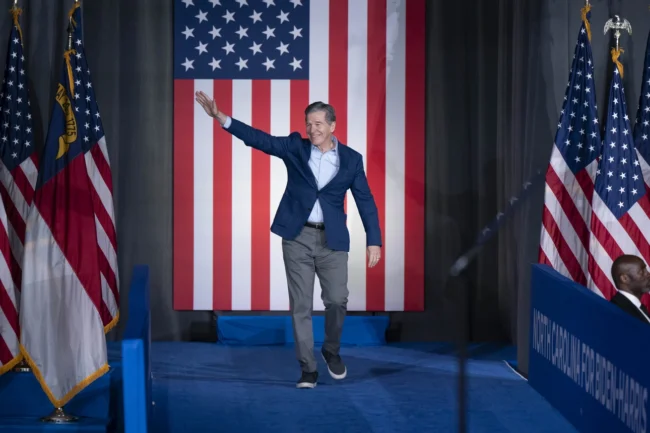
As Kamala Harris’ campaign for president gained momentum, North Carolina Governor Roy Cooper emerged as a top contender for her vice-presidential pick. His political record, including two successful gubernatorial elections in a crucial swing state, made him an obvious choice. Additionally, Cooper and Harris share a history from their time as state attorneys general in the 2010s. However, in a surprising move, Cooper chose not to pursue the vice-presidential nomination. Here’s a detailed look at why he made this decision and the factors that influenced it.
Cooper’s Decision: Local Politics at Play
Governor Cooper’s refusal to join the VP race was largely influenced by concerns over North Carolina’s political dynamics. One of his main worries was the potential actions of Lt. Gov. Mark Robinson, the GOP nominee for governor, who could attempt to seize power whenever Cooper was out of state campaigning with Harris. This concern stemmed from a constitutional provision dating back to the wagon wheel days, which states that the lieutenant governor becomes the acting governor whenever the governor is out of the state.
Cooper had previously experienced Robinson’s tendencies when he claimed to be the acting governor during Cooper’s trip to Japan. This incident, involving a press conference and proclamation on supporting Israel, highlighted Robinson’s potential to create distractions and draw attention to himself. Cooper and his team analyzed the situation, considering the Republican-majority North Carolina Supreme Court’s recent partisan decisions and the possibility of Robinson using his position to disrupt the presidential campaign.
Conversations with Harris, Biden, and Pelosi
Governor Cooper had candid discussions with key Democratic leaders, including Kamala Harris, President Joe Biden, and Speaker Nancy Pelosi, during this critical period. Reflecting on Biden’s unexpected decision to step aside from the reelection race, Cooper emphasized the president’s strong character and the legacy he cemented among the greatest presidents. He also acknowledged the grassroots enthusiasm that Harris’ candidacy generated, reminiscent of the excitement seen during Barack Obama’s 2008 campaign.
In his conversations with Harris, Cooper focused on campaign strategies and moving people forward, particularly emphasizing women’s reproductive freedom and countering MAGA Republicans’ attempts to police women’s bodies and doctors. Despite their close relationship and mutual support, neither Cooper nor Harris pushed for him to become her running mate.
Endorsement and Grassroots Support
Despite stepping out of the vice-presidential race, Cooper fully endorsed Harris, expressing confidence in her ability to win the presidency and emphasizing the importance of North Carolina in the election. He believed that winning North Carolina, the third fastest-growing state and one of the closest losses for Biden in 2020, was crucial for Harris’ success. Cooper highlighted the enthusiasm among grassroots Democrats and the strong support Harris garnered from the North Carolina delegation.
Future Prospects and Campaign Strategy
Looking ahead, Cooper is optimistic about Harris’ chances in North Carolina and committed to supporting her campaign. He emphasized the significant role of statewide races, particularly the governor’s race between Democratic Attorney General Josh Stein and the extreme GOP nominee Mark Robinson. Cooper believes that the intense focus on these races and the substantial investments expected will drive voter turnout and contribute to Harris’ victory.
With Harris set to begin her swing state tour, including a visit to North Carolina, Cooper remains confident in the campaign’s strategy and the potential for a Harris presidency. His decision not to pursue the vice-presidential nomination was driven by a commitment to his state and a strategic assessment of the political landscape, ensuring that his focus remains on helping Harris win the election.
COMMENTS